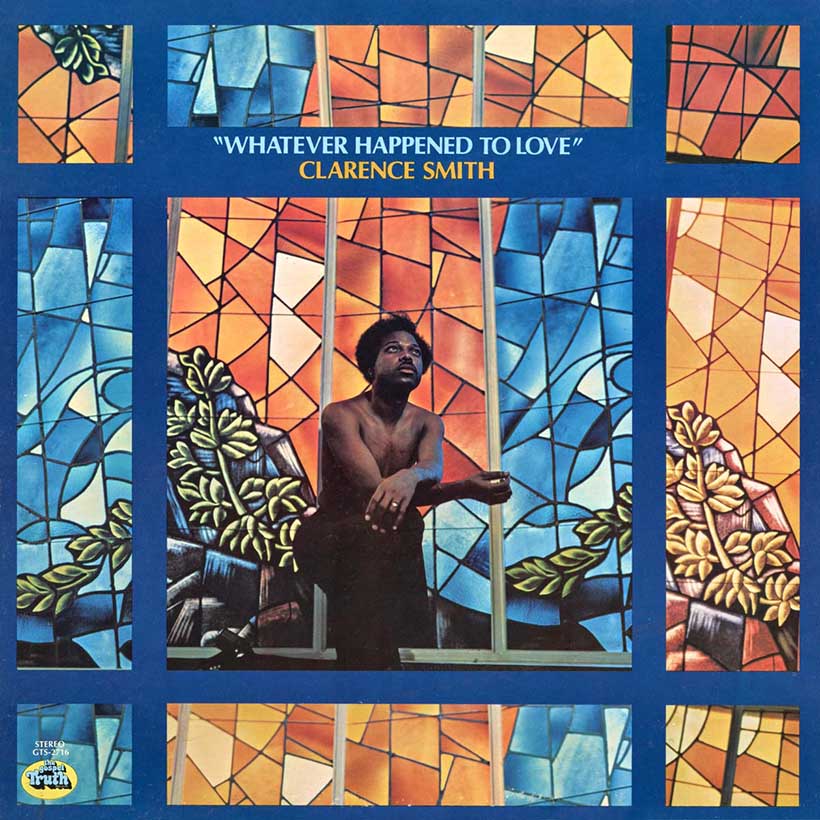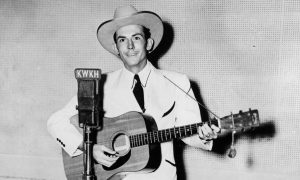“We tried to go to Motown.” That’s what virtuosic singer Rance Allen recalled of attempting to get a record deal for the group he led with his brothers (Tom on drums; Steve on bass) in Robert Gordon’s Respect Yourself: Stax Records and the Soul Explosion. But there were a couple of problems. Motown wasn’t signing Gospel acts, and Rance – a member of the Church Of God In Christ – sang exclusively in the service of the Lord.
Fortunately, there was another option, one tailormade for Rance and his brothers. Dave Clark – not the English rocker, but the barrier-breaking Black promoter – had seen the trio at a Detroit talent show, and he was developing a religious imprint, called The Gospel Truth, for the Memphis-based label that was synonymous with Southern Soul, Stax Records. Clark made The Rance Allen Group the first act he signed to The Gospel Truth.
Listen to the best of The Gospel Truth label here.
Soon after, Clark began snapping up Gospel performers from all over the country. This geographical diversity made it so that The Gospel Truth didn’t have a signature sound or style. Some of the groups on the label even ventured far away from the African-American Gospel tradition, such as Blue Aquarius, who were members of the new age Divine Light Movement (founded in Northern India), and Bob Hemphill and the Commanders, who brought a high lonesome bluegrass flavor to their music.
But all of the acts on the roster were united by the label’s mission to package Gospel in such a way that it would appeal to fans of a range of contemporary music. This manifested itself in a variety of different ways: giving a sanctified spin to secular hits; making records that sounded like the songs on R&B radio; evoking nostalgia with traditional, churchy arrangements; addressing social concerns; and sometimes by being funky enough to get a good Soul Train line going.
Here’s an introduction to some of The Gospel Truth’s Sunday Best.
The Cover Songs
Key to the label’s strategy for broadening Gospel’s appeal was to have its artists remake popular songs. In fact, the first 45 from The Gospel Truth was The Rance Allen Group’s holy take on The Temptations number one pop and R&B hit, “Just My Imagination.” Subtitled “Just My Salvation,” the song proved a perfect showcase for Rance’s vocals which could go from Paul Williams-like lows to Eddie Kendricks’ falsetto highs. This was just one of many covers that The Rance Allen Group would go on to record. Another highlight was the trio’s spiritual spin on Stevie Wonder’s “For Once In My Life,” which transforms the familiar tune into a soulful testimony about finding the love of God.
Other standout covers from the label include a sweetly meditative version of the Stylistics “Stop, Look, Listen (To Your Heart)” by the Howard Lemon Singers and The Marion Gaines Singers funky yet moving rendition of Bill Withers’ “Grandma’s Hands.”
But, by far, one of the most interesting songs that incorporate a previous hit is Louise McCord’s “Be Still and Know He’s God.” It uses the opening lines from “Make It Easy For Yourself,” written by the prolific team of Burt Bacharach and Hal David, and made popular by such singers as Jerry Butler and Dionne Warwick. The song is a highlight of McCord’s 1972 album A Tribute To Mahalia Jackson. The “Queen of Gospel” passed earlier in the year, and rather than simply re-do her songs, McCord taps into Jackson’s spirit of wanting to bring the Lord’s message to the masses. She comes up with songs that have a range of sounds from solemnly traditional to platform-shoe funky, but they are always made moving by the charging soul of her vocals.
Soul For Your Soul
Another way The Gospel Truth reached beyond the church-going crowd was by making songs that sounded similar to the ballads and party jams being played on Black radio. On first listen to “Keep My Baby Warm” by the brother-sister duo Charles and Annette May, it sounds as if the female-half of the duo is comforting a downtrodden lover. But actually she’s singing from the perspective of the Virgin Mary vowing to fiercely protect baby Jesus.
Other acts evoked secular performers without mimicking their style. Clarence Smith gives an affecting yet laidback vocal in the manner of factory-man-turned-musician Bill Withers, and the nine-member D.C. outfit The Gospel Artistics pay homage to street corner doo-wop on “Lord Is It I?” The women of The Howard Lemon Singers blend their voices like their Stax labelmates The Emotions. And the People’s Choir of Rev. Jesse Jackson’s Operation PUSH (People United to Save Humanity) serve up spare yet elegant, Philly-style arrangements, that were coordinated by their musical leader, Rev. Marvin Yancy. He would go on to marry Natalie Cole and work on several of her early hits.
Ol’ Time Religion
Sometimes The Gospel Truth tried to gain new listeners, not by giving them the latest sounds, but by evoking the religious music of an earlier time. D.C.’s Gospel Artistics, Detroit’s Marion Gaines Singers, and Chicago’s Christian Tabernacle Concert Choir, led by church founder Maceo Woods. variously bring the sounds of Hammond organs, wailing vocals, and rollicking foot-stomping rhythms.
Louise McCord does a soaring rendition of the Black gospel classic “Soon I Will Be Done,” which has roots in the spirituals of the enslaved. It was memorably performed by Mahalia Jackson in the 1959 melodrama Imitation of Life.
The Good Fight
In general, Stax always reflected the social concerns of the day as they related to Black people. The musical output from The Gospel Truth was no different. “If I Could Make The World Better,” from The Rance Allen Group, “When Will People Learn To Love” by The Henry Jackson Company, The Gospel Artistic’s “Time Shall Be No More,” and The Howard Lemon Singers’ steeple-shaking version of R&B singer Luther Ingrams’ “To The Other Man” all offer utopic, King-like visions of racial respect and harmony. But the surging funk and assertive vocals of Louise McCord’s “Better Get A Move On,” suggests a more militant urgency, As she sings, “Hurry up, straighten up your world.”
Beat Back The Devil
These tunes have such strong rhythms that they might turn a holy-roller into a b-boy or girl. “Satisfied” by siblings Charles and Annette May is a bongo throwdown. The Rance Allen Group’s “God Is Where It’s At” is a praise-worthy revision of the much-sampled Jackson 5 hit “I Want You Back.” “The Marion Gaines Singers’ “The Man” is a funky street strut that casts the local preacher as the funkiest brotha on the block. And the opening drums of The Rance Allen Group’s “Hotline To Jesus” would prefigure what producer Kenton Nix would do on such post-disco classics as Gwen McCrae’s “Funky Sensation” and Taana Gardner’s “Heartbeat.” The broad experimentation at The Gospel Truth would go on to impact music in ways that mortals may never fully understand.
Buy the Complete Singles Collection of The Gospel Truth label here.




